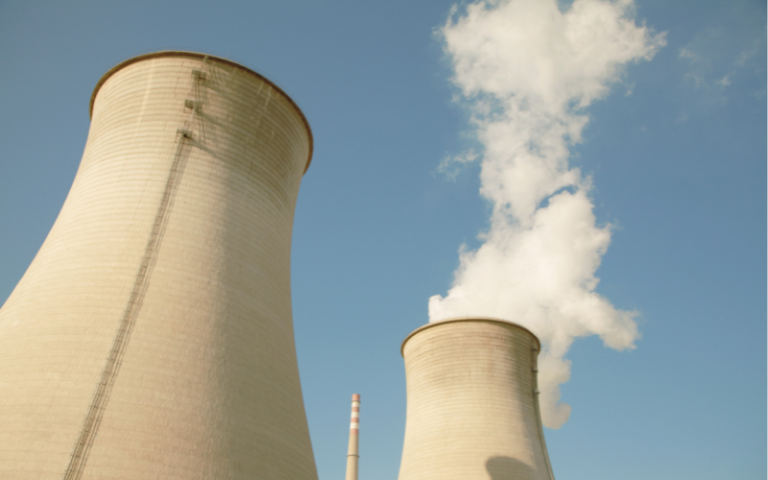How to Phase-Out Fossil Fuels and Still Win an Election
5 December 2023
As the battle over whether to phase out fossil fuels rages at COP28, new UCL research shows how it can be done without sacrificing electoral popularity—even in coal regions.

As Jean-Claude Juncker, the former European Commission president, once said of the political task of tackling climate change: “We all know what to do, but we don’t know how to get re-elected once we have done it.”
A key political challenge is that conventional climate policy measures impose concentrated costs on particular industries and regions, such as coalmining communities.
A new paper by Dr Fergus Green (UCL Department of Political Science) and his collaborators, Dr Diane Bolet (University of Essex) and Dr Mikel González-Eguino (Basque Centre for Climate Change), published this week in the American Political Science Review, points to a promising way forward: a “just transition” involving redistributive investments, negotiated through an inclusive process.
The researchers studied the Spanish Socialist Party (PSOE) Government’s policy to phase out coalmining, which was negotiated with affected unions and businesses shortly before the 2019 national election. Under the resulting “Just Transition Agreement” (JTA), 28 coalmines were to be closed by the end of 2019 in three provinces—Asturias, Teruel, and León—and the government agreed to provide €250 million in support to affected workers and investment in affected municipalities over the period 2019–2027.
The study, which has already been reported in the Financial Times and on the front page of Spain’s national broadsheet, El País, has important implications for how political parties can craft popular climate policy.
First, the study underscores the political value of a holistic policy approach to the net-zero transition that extends beyond climate policy in the narrow sense (i.e. policies to reduce greenhouse gas emissions) to encompass industrial, regional, social, and labour market policies.
Second, the process matters. In the Spanish case, tripartite social dialogue among the Government, unions and businesses built trust and confidence among affected stakeholders and led to an agreement that all parties could support. The unions, in turn, played a constructive intermediating role that built support for the Agreement, and for PSOE ahead of the election, in coalmining communities.
It helped in the Spanish case that the industry was small, relatively concentrated, and faced a weak economic outlook independently of the Government’s climate policy. These factors both incentivised and facilitated a negotiated solution. In other contexts, conditions are not always so conducive. Accordingly, policies aimed at reducing demand for fossil fuels have a crucial role to play in creating the economic conditions that make policies to phase-out supply, like Spain’s, more politically feasible.
It also helped that the Spanish government had the organisational and fiscal capacity to make such a deal. But it is clear that as the transition to net zero accelerates, all governments will need to develop the institutional capacities to facilitate industrial investment, retraining, job-mobility, and social security on a much larger scale, throughout the economy.
With this in mind, Dr Green and collaborators recently published a report setting out a “framework to guide national policy” toward socially just and politically robust transitions to net zero, as part of the UKRI-funded JUSTDECARB project. Dr Green and his colleague Dr Jared Finnegan (UCL Department of Political Science) are now building on this work in ongoing research with collaborators at the LSE as part of the ERC & UKRI-funded AdJUST project. The researchers are developing a detailed theory of the state capacities required for a just transition to net zero, and the factors that determine the presence and quality of such capacities among governments in Europe.
How was this study done?
The researchers used statistical methods to inter that the increased vote share for PSOE in coalmining municipalities was caused by the JTA. Specifically, they compared the change in PSOE’s vote share (relative to the preceding election) in municipalities subject to the JTA with its change in vote share in similar, non-coal regions. They found that the margin by which PSOE’s vote share increased was higher in the coal regions, implying that the JTA boosted PSOE’s vote in the coalmining municipalities. Further statistical tests and elite interviews conducted by the research team suggest that this electoral boost was driven by unions’ support of the JTA.
Read the paper
BOLET, D., GREEN, F., & GONZÁLEZ-EGUINO, M. (2023). How to Get Coal Country to Vote for Climate Policy: The Effect of a “Just Transition Agreement” on Spanish Election Results. American Political Science Review, 1-16. doi:10.1017/S0003055423001235
 Close
Close

